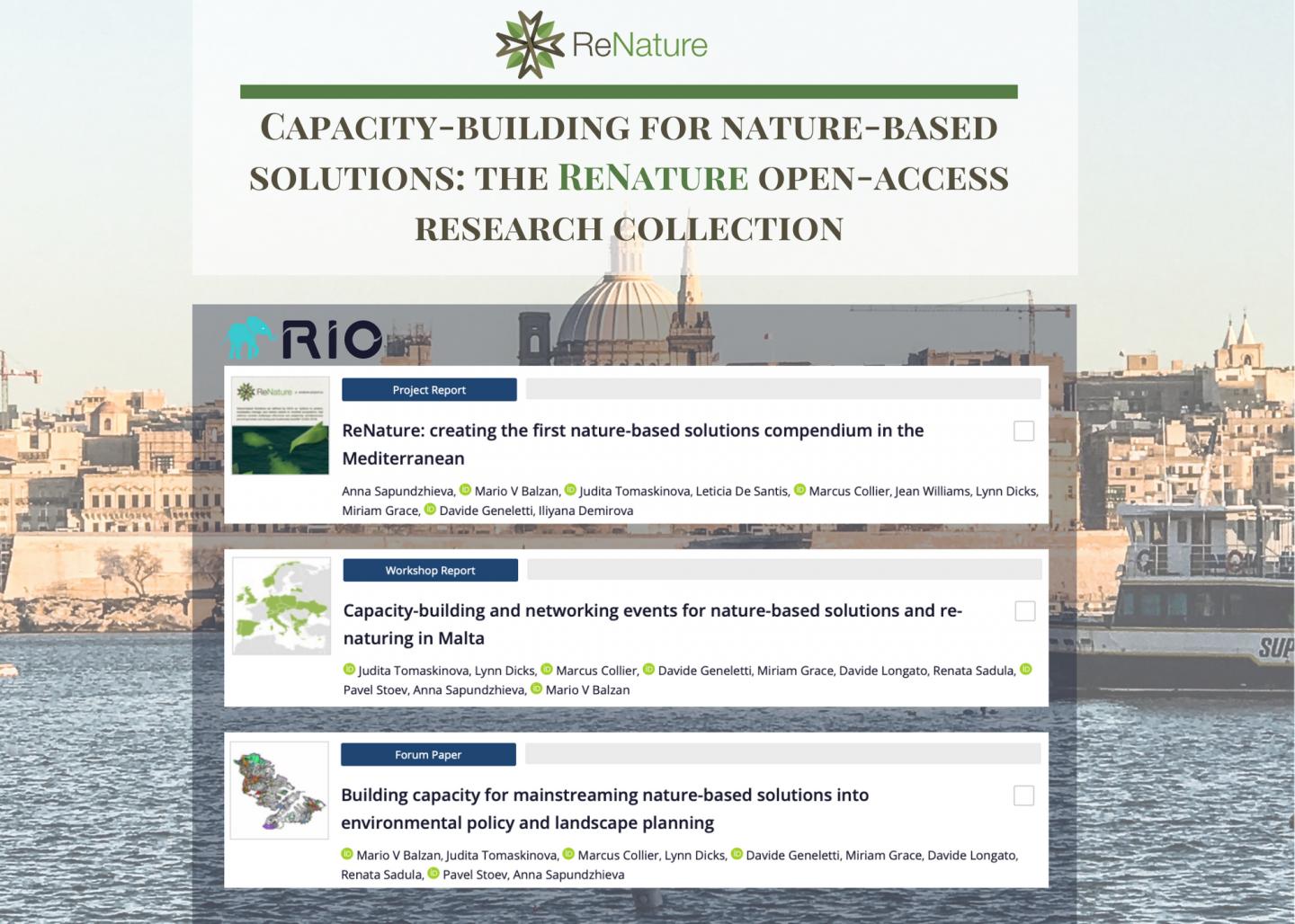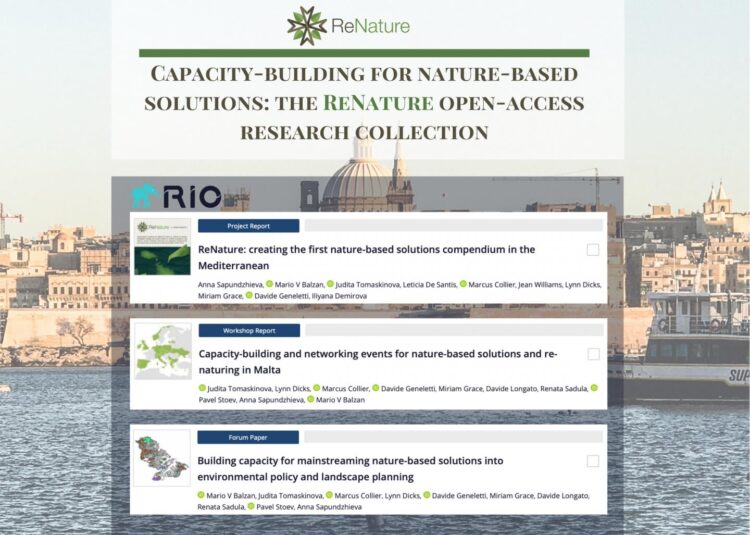EU project ReNature launches a collection of research articles in the RIO journal collating key outputs on the excellence of nature-based solutions for innovation, sustainable economic growth and human well-being in Malta

Credit: Pensoft
The ReNature project has recently launched a collection of research articles, which will host key outputs relating to the sustainable use of biodiversity and green infrastructure across rural-urban gradients, the equitable access to the benefits derived from nature in cities and socio-environmental justice, and the nature-based solutions design. The collection consists of three open access articles and will be further enhanced with other project outputs in the coming months.
The ReNature assortment of research articles is freely accessible in the Research Ideas and Outcomes (RIO) journal – a peer-reviewed open-access scientific journal, which has the goal to promote transparency, reliability, and effectiveness in scientific research, as it encompasses the full research cycle.
Why nature-based solutions?
Nature-based solutions (NbS) is a term often used to refer to adequate green infrastructure that provides multiple benefits to society whilst addressing societal challenges. NbS have the potential to build climate resilience and tackle key societal challenges while also providing multiple co-benefits to biodiversity and human well-being.?
The demand for nature-based innovation is strongly felt in Malta – a small island state, with the highest population density in the European Union. Against this background, ReNature has the goal to develop research excellence in this sector at the Malta College of Arts, Science and Technology (MCAST), and across the research, policy, business and stakeholder community.
The project ReNature is establishing and implementing a nature-based solutions research strategy for Malta with a vision to promote research and innovation and develop sustainable solutions whilst improving human well-being and tackling environmental challenges. Here, we introduce the opening of the ReNature collection of research articles in the RIO journal, where diverse research outputs can be found.
The first nature-based solutions compendium in the Mediterranean?
A central part of ReNature’s collection is the project’s first nature-based solutions compendium which aims to create a transition from theoretical knowledge and good practices in advanced research institutions to actual future application. Thus, the compendium’s development is vital for the establishment of this transition. The abridgement is an open-source collection, which contains data on nature-based solutions in Malta. Initially collecting information only about Malta, the compendium is currently growing to include submissions from across the whole Mediterranean region. The development of an open-source compendium, further plays an essential role in the co-creation of knowledge, and fostering capacity-building at a national and international level, which are some of the key objectives of ReNature. By sharing existing data about successfully implemented nature-based solutions, the platform is giving examples of good practices for practitioners and the research community.
Strategically designed training courses
The ReNature consortium has implemented capacity-building events, supporting the spread of knowledge and utilisation of NbS.
Six training courses were carried out within the first 18 months of ReNature, aiming to enhance the institutional research capacity and to develop stronger links between research, policy, and the business and stakeholder community. As such, the project is helping to position Malta as a front-runner country in research and innovation, and in the generation of novel NbS that tackle environmental challenges faced by modern societies. The ReNature consortium and the research community within which it is anchored seek to promote capacity building and have identified a number of learning outcomes, essential in the field of NbS. This activity is delivered through the coordination of specific modular training in topics related to the key areas of this concept.?
Resulting from this set of training courses, twelve presentations are available in one of ReNature’s articles, which cover a large scope of topics related to the implementation of NbS. ReNature will publish another round of learning outputs, deriving from the rest of the training activities planned within the purview of the project.
###
Find the collection here.
This project receives funding from the European Union’s Horizon 2020 research and innovation programme under grant agreement No 809988.
Media Contact
Dr. Mario Balzan
[email protected]





